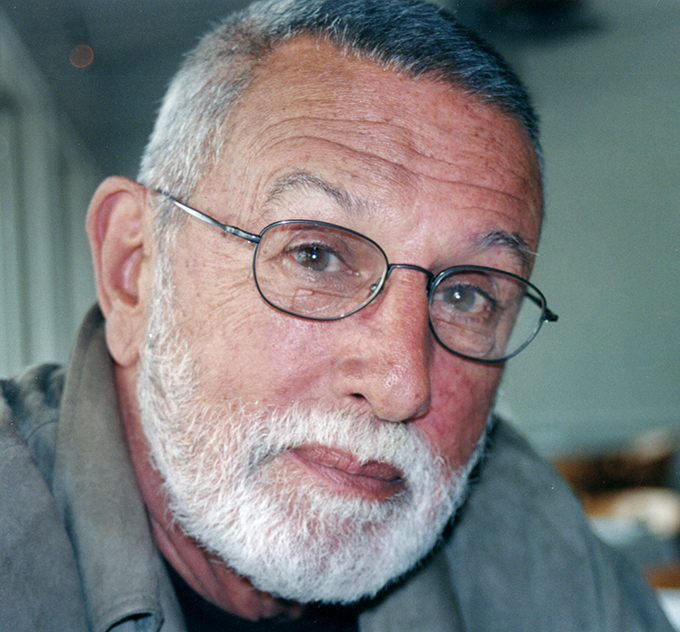Remembering Frank Soracco
By Mike Miller
Frank Soracco was a friend of mine. He died from heart failure at the end of 2020. We met during my late 1962 to end of 1966 days as Bay Area regional representative for the Student Nonviolent Coordinating Committee (SNCC).
In 1964, Frank, son of a Placerville, CA, Republican doctor, a high school teacher and football coach, showed up at our “Snick” office to volunteer. For a couple of months, he participated in fund-raising, education about the Deep South civil rights movement, political pressure on the Federal Government, and volunteer recruitment activities. By the Fall, as had happened to me the year before, the compelling drama of what was happening in the South drew Frank to go. He packed his VW Bug and headed for Selma, Alabama. He participated in door-to-door canvassing to convince local people to attempt to register to vote—which in those days could lead to firing, eviction, denial of loan applications, home firebombing, beating and death. Frank earned the trust of local people and SNCC staff.
The Southern Christian Leadership Conference (SCLC) was invited by the local Dallas County Black political/citizenship organization to come to Selma. That caused resentment among SNCC people; Frank wasn’t one of them. He fully participated with SCLC in the organizing work for the important Selma marches. Those marches, the largely SNCC-organized Mississippi Freedom Democratic Party’s challenge to the 1964 Democratic Party Convention seating of its racist Mississippi state party, and challenge to the January, 1965, Congressional seating of the State’s racist House delegation, led to passage of the 1965 Voting Rights Act.
There were several marches, some accompanied by police violence, others protected by a federal presence. Frank was so respected by that time that he was named co-marshal for the marches with SNCC’s Ivanhoe Donaldson.
During the violence of “Bloody Sunday” march Frank was attacked with cattle prods and billy-clubs as he ran from the police. He came upon Rachel West, a local nine-year-old frozen in place and crying, swept her up in one arm, like he was picking up a football, and rescued her.
She later wrote her story in Selma, Lord, Selma, which became a Disney film, and was interviewed by the producers of Eyes on the Prize, the classic PBS documentary on the period: “If he hadn’t grabbed me,” she said, “I don’t think I’d be here today.”
On one occasion Frank was arrested by Selma police and thrown in jail with Martin Luther King. Therein lies an illustration of Frank’s character.
It is important to know that the law enforcement mix in Selma included Police Chief Wilson Baker, intent on avoiding the kind of violence erupting elsewhere in police encounters with civil rights activity and convinced it was the strategic way to kill “The Movement”, and the brutality (baton beatings, intimidation with police horses, use of cattle prods) of County Sheriff Jim Clark and State Trooper Director Al Lingo.
Recognizing their differences, Frank started talking with Baker, hoping to develop some kind of relationship with him that might help civil rights. Frank was one of the most relational people I’ve ever known, so this was not out of character.
Frank, Martin Luther King and hundreds of others were arrested because they violated a local law requiring permits for public marches. Baker put Frank in a cell with King; that was illegal. Like everything else in Alabama, jails were segregated. I thought a lot about that incident. The only thing that explains it is that Baker knew Frank would be badly beaten in the white cell and didn’t want that to happen.
About 20 years later, when Taylor Branch was working on Pillar of Fire, the second volume of his important trilogy The King Years, he interviewed Frank, and asked him who he might talk with to get a Selma white’s view of those times. Frank proposed Baker’s widow, set up the interview and accompanied Branch to meet her. That’s the kind of person Frank was.
Frank left SNCC in the mid-1960s, moved to Los Angeles, used his SNCC organizing skills and contacts with “friends of SNCC” to raise the startup money for what became the successful Marina Del Rey restaurant, The Fiasco. He built a small apartment underneath the restaurant where he hosted SNCC and other friends who traveled to LA, often with free meals upstairs for people far less financially successful (me among them) than he had become.
He was a generous donor to ORGANIZE Training Center, the nonprofit I direct.
Frank made the world a better place.
…

Mike, Thanks for the well written obit on my older brother. Also for coming to his Memorial and your comments at the dinner. Sincerely, Peter